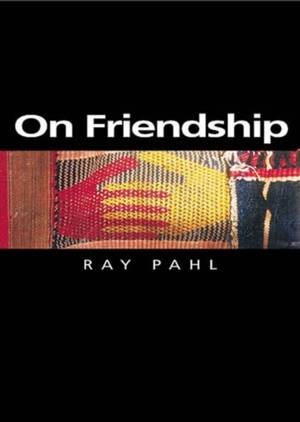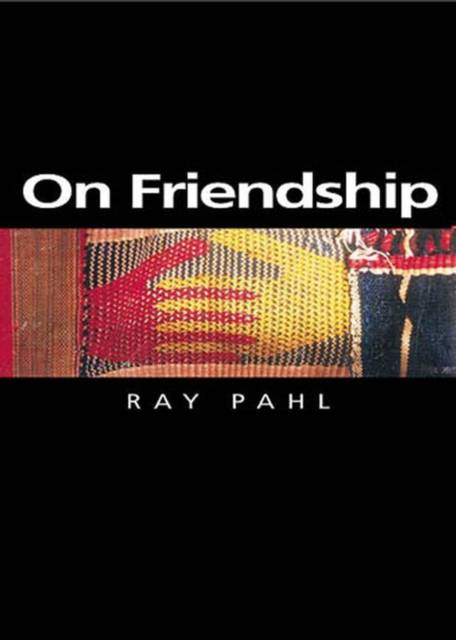
Je cadeautjes zeker op tijd in huis hebben voor de feestdagen? Kom langs in onze winkels en vind het perfecte geschenk!
- Afhalen na 1 uur in een winkel met voorraad
- Gratis thuislevering in België vanaf € 30
- Ruim aanbod met 7 miljoen producten
Je cadeautjes zeker op tijd in huis hebben voor de feestdagen? Kom langs in onze winkels en vind het perfecte geschenk!
- Afhalen na 1 uur in een winkel met voorraad
- Gratis thuislevering in België vanaf € 30
- Ruim aanbod met 7 miljoen producten
Zoeken
Omschrijving
Friends can help to form the basic structure of our lives but we very often take them for granted. Friends can sometimes be regarded as an oppressive burden when they appear to be greedily demanding too much of us. How to get the balance right is a perennial concern and the subject of much fiction and drama.
But has this always been the case or is the nature and meaning of friendship changing in contemporary society? Ray Pahl explores these issues as well as discussing who needs friends most and when, how friends make us the people that we are and whether friendship is a new metaphor for morality.
Pahl brings refreshing new insights to a form of relationship that has changed in its meaning and significance since the classical discussion by Aristotle. Drawing on a wide range of material, including history, philosophy, psychology and sociology, he focuses it into distinctive shafts of light which illuminate different aspects of this rich and multi-faceted topic.
Understanding friendship is important at the private level, as we struggle with the problem of personal identity in a kaleidoscopic world, and also at the public level where inappropriate friendship emerges as cronyism or subtle varieties of political corruption.
This accessible jargon-free book will appeal to a wide readership, since it does much to illuminate a fascinating topic at many different levels.
But has this always been the case or is the nature and meaning of friendship changing in contemporary society? Ray Pahl explores these issues as well as discussing who needs friends most and when, how friends make us the people that we are and whether friendship is a new metaphor for morality.
Pahl brings refreshing new insights to a form of relationship that has changed in its meaning and significance since the classical discussion by Aristotle. Drawing on a wide range of material, including history, philosophy, psychology and sociology, he focuses it into distinctive shafts of light which illuminate different aspects of this rich and multi-faceted topic.
Understanding friendship is important at the private level, as we struggle with the problem of personal identity in a kaleidoscopic world, and also at the public level where inappropriate friendship emerges as cronyism or subtle varieties of political corruption.
This accessible jargon-free book will appeal to a wide readership, since it does much to illuminate a fascinating topic at many different levels.
Specificaties
Betrokkenen
- Auteur(s):
- Uitgeverij:
Inhoud
- Aantal bladzijden:
- 200
- Taal:
- Engels
- Reeks:
Eigenschappen
- Productcode (EAN):
- 9780745622811
- Verschijningsdatum:
- 19/10/2000
- Uitvoering:
- Paperback
- Formaat:
- Trade paperback (VS)
- Afmetingen:
- 137 mm x 189 mm
- Gewicht:
- 222 g

Alleen bij Standaard Boekhandel
+ 79 punten op je klantenkaart van Standaard Boekhandel
Beoordelingen
We publiceren alleen reviews die voldoen aan de voorwaarden voor reviews. Bekijk onze voorwaarden voor reviews.









